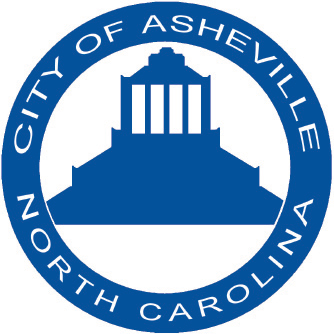Asheville City Council begins its work for 2019 with a different look — the staff reports filed by new City Manager Debra Campbell now feature a City Hall logo and a more liberal use of bullet points — but the same consistent issue of affordable housing. On Tuesday, Jan. 8, Council will hold a public hearing on how to reallocate nearly $1.4 million in HOME funding from the U.S. Department of Housing and Urban Development.
As explained by Sam Powers and Michael Blair of the city’s Community and Economic Development Department, $1.1 million in previously allocated funds were not awarded to Mountain Housing Opportunities’ Clingman@Hilliard project and Workforce Homestead’s Falling Waters. Additional program income and contingency funds round out the remainder of the $1.4 million that can now be given to other projects.
The Asheville Regional Housing Consortium, which covers four counties but is led by the city of Asheville, recommended $1 million for Mountain Housing Opportunities’ East Haven apartment complex in Swannanoa. Workforce Homestead’s Amaranth complex in Candler would receive $341,100, while Henderson County Habitat for Humanity would get $55,000 to provide down payment assistance for homeowners in its Dodd Meadows community.
Taken together, this money would support 170 affordable rental units and 12 homeowners. Staff identified no cons or negative fiscal impact to the reallocation.
In other business
Council’s two other public hearings concern conditional zoning modifications for residential developments. The first considers changes to previously approved conditional zoning on Hazel Mill Road in West Asheville to make a 113-apartment project more financially feasible for developer Harry Pilos. Notable alterations include realigning sidewalks along Hazel Mill Road, eliminating the requirement for brick pavers in the parking area and offering bus passes for two years rather than in perpetuity.
The second hearing is on a project of considerably larger scale: a 418-unit subdivision with up to 15,000 square feet of commercial space on 137 acres on Ferry Road. Council will be asked to rezone the property from residential multifamily to a combination of commercial expansion and residential expansion districts, as well as change its future land-use map from traditional neighborhood to residential neighborhood.
Most of the conditions sought by the applicant, Jennifer Lanning of Exit Realty, aim to make the project more compact and preserve its environmentally sensitive site next to the French Broad River. Sidewalk widths will be halved from the mandated 10 feet to 5 feet in the subdivision’s residential parts, while the required minimum lot size will be cut from 3,500 to 2,500 square feet.
Consent agenda
The meeting’s consent agenda contains nine items, which are typically approved as a package unless specifically singled out for separate discussion. Highlights include the following:
- A resolution placing the conditional use permit for 192 Haywood St. with the Buncombe County Clerk of Superior Court. This move prevents developer PHG Asheville from beginning work on an eight-story hotel, which Council first denied in February 2017. The Buncombe County Superior Court reversed Council’s decision in November 2017, with the N.C. Court of Appeals upholding that decision last November; the N.C. Supreme Court is now considering whether to review the case.
- A resolution approving $9,950 in additional funding for the city’s recently completed disparity study. Staff members say BBC Research & Consulting did not inform them about the additional costs until the end of the project.
- A resolution approving the sale of a 2010 John Deere 410J backhoe deemed surplus property by the Water Resources Department. State statutes require City Council to approve all sales of property valued at $30,000 or greater.
Asheville City Council meets at 5 p.m. in council chambers on the second floor of City Hall at 70 Court Plaza, Asheville. The full meeting agenda and supporting documents can be found here.




We’ll see y’all there!
“Staff members say BBC Research & Consulting did not inform them about the additional costs until the end of the project.”
Then don’t pay them.